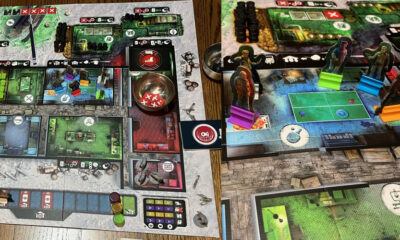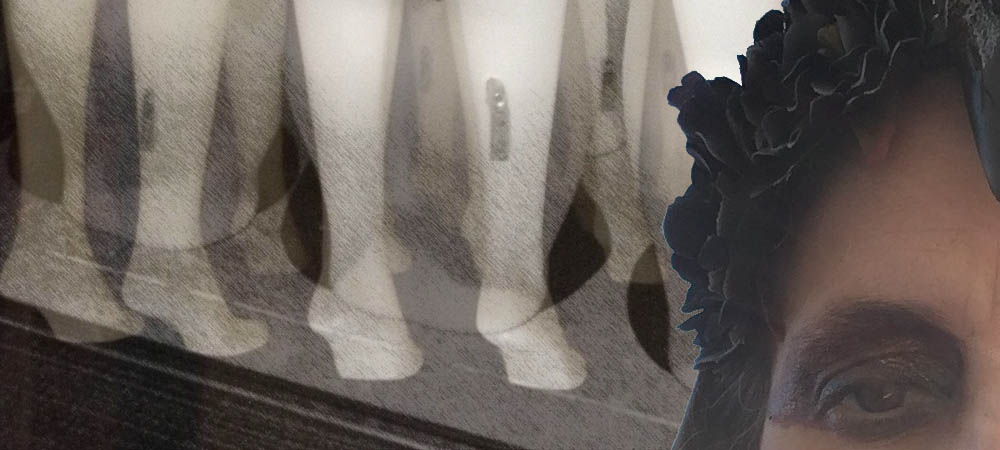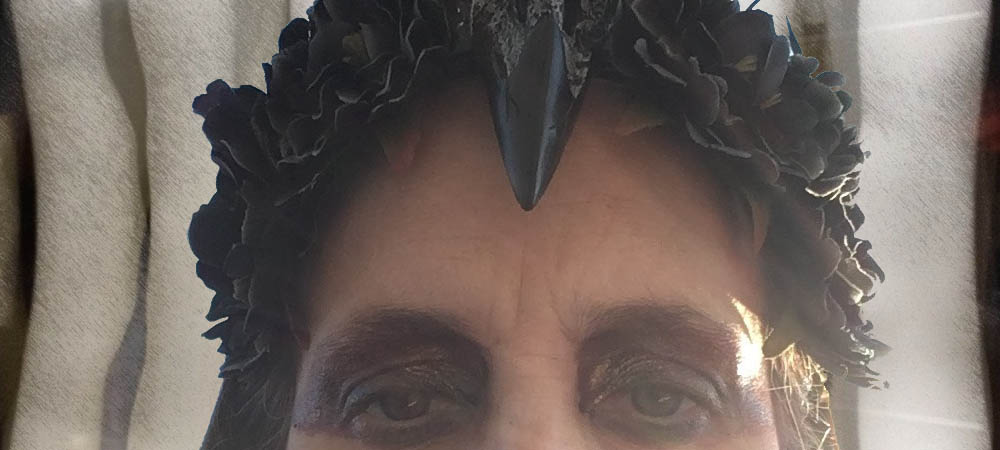
Haunted MTL Original – The Reconstructivist – Emma Parrella
More Videos
Published
5 years agoon
By
Shane M.The Reconstructivist by Emma Parrella
I take a step out the door, and my foot sinks about an inch into the grass. We’ve had night and day rain for the past week, but a man’s still got to do chores— I can already hear Bessie mooing. I pull my jacket tight around me and trudge around back to the shed. Pulling open the tall red door, I grimace at the sight in front of me.
“Oh, Bess, you’ve fallen down again,” I rush over to her, “now just stay still, and we’ll have you right back up.” Bessie’s been a bit ill as of late, so I’ve rigged up a jack with a sort of platform that helps me put her right whenever she falls. She’s certainly a bit too heavy for me to lift on my own (though she’s been losing weight as of late) so I just thank the Lord for simple machines. I prop her against the side of her stall, so she might have a bit of assistance for her weak legs. We used to keep her outside before she got sick, but now I’ve outfitted a stall all nice for her, hay and water and nice and warm. There’s a smell I can’t seem to do anything about, but cows don’t mind smell much. It’s hardly worth trying, but I pull out a milking stool and bucket next. As expected, Bess is bone-dry— she hasn’t given milk for a long time. She’s an old cow, though, and certainly far out of her heyday, so it’s no surprise to me. I pat her flank and smile. “Sorry ‘bout that, Bessie. Bye now.” I squelch my way over to the chicken coop, and climb inside. We’re twelve chickens strong, and they’re all fast asleep this morning. It’s funny, actually— I was sure I heard clucking, but perhaps one woke up and then fell right back asleep. I carefully pick up the first hen to check for eggs. Nothing. The next eleven hens sadly yield the same result. I nuzzle each one as I pick them up— I’ve heard that that can help them lay, and besides, I’m just much more sentimental than any self-respecting farmer ought to be. I’m not sure they’ll ever lay again, though. Truth be told, I’m beginning to suspect that whatever keeps Bess from producing is the same thing that keeps the hens from laying. Even might be what effects that terrible weakness in Fannie and the kids. Speaking of Fannie and the kids, I realize suddenly that the sun’s rather high in the sky— I must’ve spent a bit too long helping Bessie up this morning. I pull my hood over my head and slide through the mud back to the house, making sure to wipe my feet before I walk in— Fannie’d kill me if I tracked mud in.
I pull off my work boots, and then head upstairs to wake Fannie first. She’s beautiful when she sleeps. I stand for a second, watching her, and then walk over and press my lips to her forehead.
“Mornin’ darling,” I whisper. I lightly brush her eyes open. Fannie and the kids, like I mentioned, have been awful ill lately, and greatly weak. I have to do practically everything for them.
“Morning, pumpkin,” she responds, and I feel just terribly sad for her— she’s so weak her lips barely even move. I help her dress, and then I pick her up bridal style to carry her down to the kitchen for breakfast. Her head falls against my chest and her eyes drop shut. I laugh.
“C’mon, now Fannie, you’ve got to wake up!” She doesn’t move, but instead softly sighs. We reach the kitchen, and I carefully put lay her in a chair. She sags to one side, and I dive to catch her before she falls and right her.
“Thanks, hon,” she says quietly. Fannie’s always quiet, now, ever since she got sick. It’s a wonder that I’m such a picture of health while they’re all so afflicted. Though, I think it quite possible that the Lord left me be so I could care for them. Which, of course reminds me I must be getting the kids up too now. Jack greets me with “Morning, dad!”, and his voice so bright reminds me of when he used to run around the farm with the other local boys. Fannie used to have to holler for fifteen minutes at least to get him to come in for supper. It’s sad to see him like this, even more than the others. I carry him down too, and set him next to his ma, and leave them to talk while I wake Beth.
She just groans when I wake her— sick or no, she’s a teenage girl. I carry her down, too, and then set myself to making breakfast. It’s a shame, Fannie used to make eggs like nobody else could, but her household duties fell to me when she fell sick. Doesn’t matter, anyway— there’ve been no eggs from our hens, and the general store’s been abandoned, so there’s no chance of eggs there. Luckily, no illness could make the crops stop growing, so I start water boiling to boil some potatoes. I carry on with Fanny for a couple minutes while the potatoes cook, as she seems to think I should’ve sliced and fried them. Frying isn’t good without butter, though, and even if Bessie was giving milk, I barely have time for all I have to do without churning butter as well.
The breakfast is as good as any, although you wouldn’t think it from the potatoes left on the rest of their plates. Beth has always been picky, and lately she’s just been a bit too good for boiled vegetables. Fannie’s told me she’s much too frail to eat, although I think she just doesn’t much like my cooking. Jack, I’ve no explanation for except the affliction. It’s terrible sad to see a boy so weak. When I was his age, I ate no less than four eggs for breakfast each morning, and he can’t even stomach a bit of a potato. It’s no worse than normal, though, so I set them each in their typical spots.
I carefully lift Fannie and take her to her favorite chair. It faces a window, so she can look out and see Jack play. She loves to watch out of windows. She’s always been quiet-like. Part of why I love her. I set her down gently, and then pick up Beth the same way and set her next to her mother. They’re thick as thieves– like to gossip about the other villagefolk and gad on and such. I pull out an embroidery hoop for each of them and carefully place them in their hands. Well, least, I’m careful with Fannie. Perhaps Beth is feeling a bit more frail today, or mayhaps I was a bit too harsh with her, because as I bend her wrist to give her her embroidery, her wrist snaps clean, and I’m left with three hands and her with one. She shrieks, and I go to get our medical kit.
Pulling out bandages, I reposition her wrist and pull a needle and thread from the kit. She squeals as I begin to stitch, but I steadily continue and soon the job’s done. Her blood’s dry from affliction, so it’s fairly clean. I’ve been getting better with stitches. Beth always shrieks and squirms when I have to sew her up– but then, she’s been calling me to kill spiders since she was six, so I s’pose a bit of squeamishness isn’t surprising. I wrap it with bandages to prevent infection, and then kiss her forehead and let her be.
I’ve been improving my mending. The first day of the ailment, I was terrible. I was down in the storm cellar, putting away some cured meats for the winter, when I heard a horrible commotion upstairs. I ran up, but I’d locked myself in by accident. By the time I was up, it was all quiet. I came up to the house almost levelled. I believe a whirlwind must’ve stormed through while I was down there. And there they were, all so sick. Fannie was in the kitchen, lying as if dead. Peaceful like, but a big gash on her forehead that slowly dripped red. I mended her up first. Frantically. I knew I couldn’t lose her. I dug through rubble for the medical kit. Pulling up beams, I found Beth, probably the sickest of them all. She was just red, red, red, too red to see where the injuries were. I scooped her up too, and set her by her mother, and then I stitched, big uneven stitches straight into Fannie’s forehead. The bleeding stopped, but she was sick for good. Then Beth. I ran to get water, to try and wash her off, and there was Jack. He was pinned down by a big wooden beam that’d fallen from the house. He almost looked asleep, but he was the first one to talk to me. I saw him, and I called out his name. I can still hear it, crystal clear.
“Pa! Come help!” I reckoned he’d been running in to tell his ma about the tornado when it hit the house, from the way he was facing. I lugged the beam off him, hauled some water, and then brought him in. It took hours to fix them up. I wasn’t much handy at it at first, and they were badly sick then. I put them back together, though.
I’m thinking about all of this as I pick up Jack. I always take him out to his spot last. He likes to sit on the front stoop and whittle. I always sit a couple minutes with him and whittle. I’ve rebuilt our whole home from the ground up, and I made sure to put in a good stoop for sitting and whittling. I gather knives for us both, and find two sturdy bits of wood, and start carving a whistle. He just looks at his wood. Sometimes, he tells me, he’s a bit of trouble starting a carving.
Sometimes, we talk while we sit. Other times, we just sit like this, quiet. Today’s a quiet day. I look out on rolling fields, the road that leads to a town decimated then abandoned. I look at my son. A mop of blonde, lazy blue eyes, and a wound stretching ear to forehead looking as fresh as the day he got it. It hurt him, surely, but I like it. It reminds me of the family I reconstructed from the brink of death. The blacksmith couldn’t save his family from the affliction, and neither could the cooper. But here I sit, whittling with my son, alive and well.

Hello! My name is Emma Parrella. I’m a senior in high school and I’m submitting a short story I’ve written for publishing. I’m from New Jersey, I like to read and knit, and I also like writing. I typically write fantasy and some horror, specifically short stories. I’m also not sure what else goes in a biographical statement. I hope you like my story!
You may like
-
The Thing in Review, Movie 1, Movie 2 and the Board Game
-
Betty Lou’s Treasure Trove: Mannequin Horror Summer Series by Jennifer Weigel, Index & BONUS
-
Betty Lou’s Treasure Trove: Mannequin Horror Summer Series by Jennifer Weigel, Chapter 7
-
Betty Lou’s Treasure Trove: Mannequin Horror Summer Series by Jennifer Weigel, Chapter 6
-
Betty Lou’s Treasure Trove: Mannequin Horror Summer Series by Jennifer Weigel, Chapter 5
-
Betty Lou’s Treasure Trove: Mannequin Horror Summer Series by Jennifer Weigel, Chapter 4
Original Creations
Goodbye for Now, a Short Story by Jennifer Weigel
Published
1 month agoon
March 30, 2025What if ours weren’t the only reality? What if the past paths converged, if those moments that led to our current circumstances got tangled together with their alternates and we found ourselves caught up in the threads?
Marla returned home after the funeral and wake. She drew the key in the lock and opened the door slowly, the looming dread of coming back to an empty house finally sinking in. Everyone else had gone home with their loved ones. They had all said, “goodbye,” and moved along.
Her daughter Misty and son-in-law Joel had caught a flight to Springfield so he could be at work the next day for the big meeting. Her brother Darcy was on his way back to Montreal. Emmett and Ruth were at home next door, probably washing dishes from the big meal they had helped to provide afterward, seeing as their kitchen light was on. Marla remembered there being food but couldn’t recall what exactly as she hadn’t felt like eating. Sandwiches probably… she’d have to thank them later.
Marla had felt supported up until she turned the key in the lock after the services, but then the realization sank deep in her throat like acid reflux, hanging heavy on her heart – everyone else had other lives to return to except for her. She sighed and stepped through the threshold onto the outdated beige linoleum tile and the braided rag rug that stretched across it. She closed the door behind herself and sighed again. She wiped her shoes reflexively on the mat before just kicking them off to land in a haphazard heap in the entryway.
The still silence of the house enveloped her, its oppressive emptiness palpable – she could feel it on her skin, taste it on her tongue. It was bitter. She sighed and walked purposefully to the living room, the large rust-orange sofa waiting to greet her. She flopped into its empty embrace, dropping her purse at her side as she did so.
A familiar, husky voice greeted her from deeper within the large, empty house. “Where have you been?”
Marla looked up and glanced around. Her husband Frank was standing in the doorway to the kitchen, drying a bowl. Marla gasped, her hand shooting to her mouth. Her clutched appendage took on a life of its own, slowly relinquishing itself of her gaping jaw and extending a first finger to point at the specter.
“Frank?” she spoke hesitantly.
“Yeah,” the man replied, holding the now-dry bowl nestled in the faded blue-and-white-checkered kitchen towel in both hands. “Who else would you expect?”
“But you’re dead,” Marla spat, the words falling limply from her mouth of their own accord.
The 66-year old man looked around confusedly and turned to face Marla, his silver hair sparkling in the light from the kitchen, illuminated from behind like a halo. “What are you talking about? I’m just here washing up after lunch. You were gone so I made myself some soup. Where have you been?”
“No, I just got home from your funeral,” Marla spoke quietly. “You are dead. After the boating accident… You drowned. I went along to the hospital – they pronounced you dead on arrival.”
“I don’t know what you’re talking about,” Frank said. “What boating accident?”
“The sailboat… You were going to take me out,” Marla coughed, her brown eyes glossed over with tears.
“We don’t own a sailboat,” Frank said bluntly. “Sure, I’d thought about it – it seems like a cool retirement hobby – but it’s just too expensive. We’ve talked about this, we can’t afford it.”
Marla glanced out the bay window towards the driveway where the small sailboat sat on its trailer, its orange hull reminiscent of the Florida citrus industry, and also of the life jacket Frank should have been wearing when he’d been pulled under. Marla cringed and turned back toward the kitchen. She sighed and spoke again, “But the boat’s out front. The guys at the marina helped to bring it back… after you… drowned.”
Frank had retreated to the kitchen to put away the bowl. Marla followed. She stood in the doorway and studied the man intently. He was unmistakably her husband, there was no denying it even despite her having just witnessed his waxen lifeless body in the coffin at the wake before the burial, though this Frank was a slight bit more overweight than she remembered.
“Well, that’s not possible. Because I’m still here,” Frank grumbled. He turned to face her, his blue eyes edged with worry. “There now, it was probably just a dream. You knew I wanted a boat and your anxiety just formulated the worst-case scenario…”
“See for yourself,” Marla said, her voice lilting with every syllable.
Frank strode into the living room and stared out the bay window. The driveway was vacant save for some bits of Spanish moss strewn over the concrete from the neighboring live oak tree. He turned towards his wife.
“But there’s no boat,” he sighed. “You must have had a bad dream. Did you fall asleep in the car in the garage again?” Concern was written all over his face, deepening every crease and wrinkle. “Is that where you were? The garage?”
Marla glanced again at the boat, plain as day, and turned to face Frank. Her voice grew stubborn. “It’s right here. How can you miss it?” she said, pointing at the orange behemoth.
“Honey, there’s nothing there,” Frank exclaimed, exasperation creeping into his voice.
Marla huffed and strode to the entryway, gathering her shoes from where they waited in their haphazard heap alongside the braided rag run on the worn linoleum floor. She marched out the door as Frank took vigil in its open frame, still staring at her. She stomped out to the boat and slapped her hand on the fiberglass surface with a resounding smack. The boat was warm to the touch, having baked in the Florida sun. She turned back towards the front door.
“See!” she bellowed.
The door stood open, empty. No one was there, watching. Marla sighed again and walked back inside. The vacant house once again enveloped her in its oppressive emptiness. Frank was nowhere to be found.

So I guess it’s goodbye for now. Feel free to check out more of Jennifer Weigel’s work here on Haunted MTL or here on her website.
Today on Nightmarish Nature we’re gonna revisit The Blob and jiggle our way to terror. Why? ‘Cause we’re just jellies – looking at those gelatinous denizens of the deep, as well as some snot-like land-bound monstrosities, and wishing we could ooze on down for some snoozy booze schmoozing action. Or something.
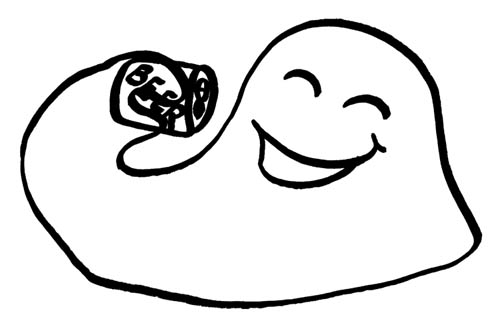
Honestly, I don’t know what exactly it is that jellyfish and slime molds do but whatever it is they do it well, which is why they’re still around despite being among the more ancient organism templates still in common use.
Jellyfish are on the rise.
Yeah, yeah, some species like moon jellies will hang out in huge blooms near the surface feeding, but that’s not what I meant. Jellyfish populations are up. They’re honing in on the open over-fished ocean and making themselves at home. Again.
And, although this makes the sea turtles happy since jellies are a favorite food staple of theirs, not much else is excited about the development. Except for those fish that like to hide out inside of their bells, assuming they don’t accidentally get eaten hanging out in there. But that’s a risk you gotta take when you’re trying to escape predation by surrounding yourself in a bubble of danger that itself wants to eat you. Be eaten or be eaten. Oh, wait…
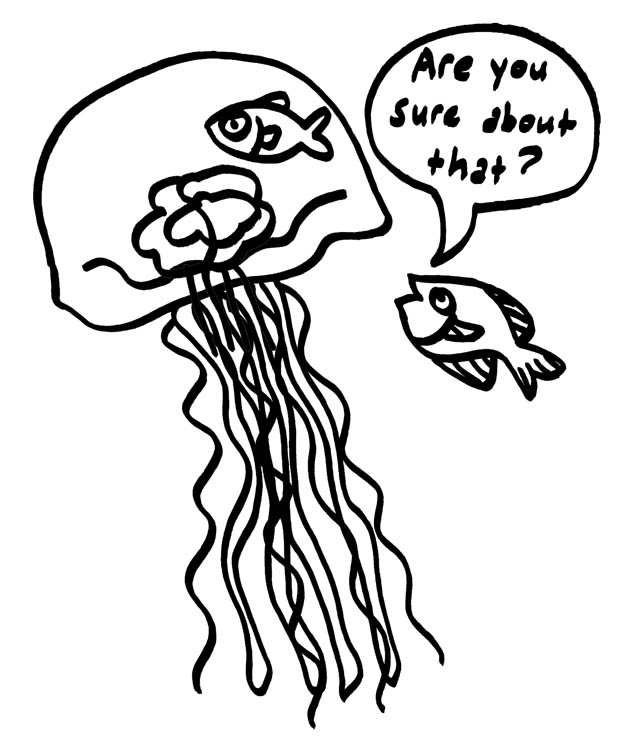
So what makes jellies so scary?
Jellyfish pack some mighty venom. Despite obvious differences in mobility, they are related to anemones and corals. But not the Man o’ War which looks similar but is actually a community of microorganisms that function together as a whole, not one creature. Not that it matters when you’re on the wrong end of a nematocyst, really. Because regardless what it’s attached to, that stings.
Box jellies are among the most venomous creatures in the world and can move of their own accord rather than just drifting about like many smaller jellyfish do. And even if they aren’t deadly, the venom from many jellyfish species will cause blisters and lesions that can take a long time to heal. So even if they do resemble free-floating plastic grocery bags, you’d do best to steer clear. Because those are some dangerous curves.
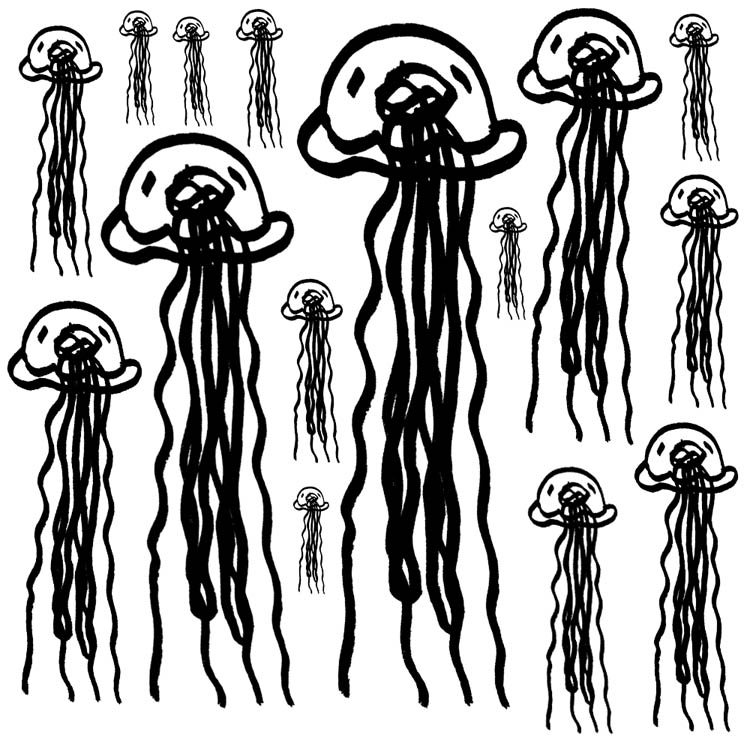
But what does this have to do with slime molds?
Absolutely nothing. I honestly don’t know enough about jellyfish or slime molds to devote the whole of a Nightmarish Nature segment to either, so they had to share. Essentially, this bit is what happened when I decided to toast a bagel before coming up with something to write about and spent a tad too much time in contemplation of my breakfast. I guess we’re lucky I didn’t have any cream cheese or clotted cream…
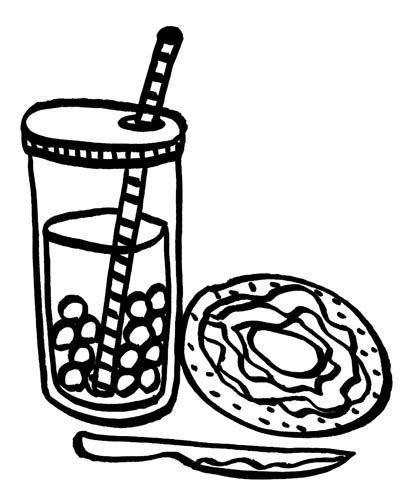
Oh, and also thinking about gelatinous cubes and oozes in the role-playing game sense – because those sort of seem like a weird hybrid between jellies and slime molds, as does The Blob. Any of those amoeba influenced creatures are horrific by their very nature – they don’t even need to be souped up, just ask anyone who’s had dysentery.
And one of the most interesting thing about slime molds is that they can take the shortest path to food even when confronted with very complex barriers. They are maze masterminds and would give the Minotaur more than a run for his money, especially if he had or was food. They have even proven capable of determining the most efficient paths for water lines or railways in metropolitan regions, which is kind of crazy when you really think about it. Check it out in Scientific American here. So, if we assume that this is essentially the model upon which The Blob was built, then it’s kind of a miracle anything got away. And slime molds are coming under closer scrutiny and study as alternative means of creating computer components are being explored.
Jellies are the Wave of the Future.
We are learning that there may be a myriad of uses for jellyfish from foodstuffs to cosmetic products as we rethink how we interact with them. They are even proving useful in cleaning up plastic pollution. I don’t know how I feel about the foodstuff angle for all that they’ve been a part of various recipes for a long time. From what I’ve seen of the jellyfish cookbook recipes, they just don’t look that appealing. But then again I hate boba with a passion, so I’m probably not the best candidate to consider the possibility.
So it seems that jellies are kind of the wave of the future as we find that they can help solve our problems. That’s pretty impressive for some brainless millions of years old critter condiments. Past – present – perpetuity! Who knows what else we’d have found if evolution hadn’t cleaned out the fridge every so often?
Feel free to check out more Nightmarish Nature here.
Original Series
Lucky Lucky Wolfwere Saga Part 4 from Jennifer Weigel
Published
2 months agoon
March 17, 2025Continuing our junkyard dawg werewolf story from the previous St. Patrick’s Days… though technically he’s more of a wolfwere but wolfwhatever. Anyway, here are Part 1 from 2022, Part 2 from 2023 and Part 3 from 2024 if you want to catch up.
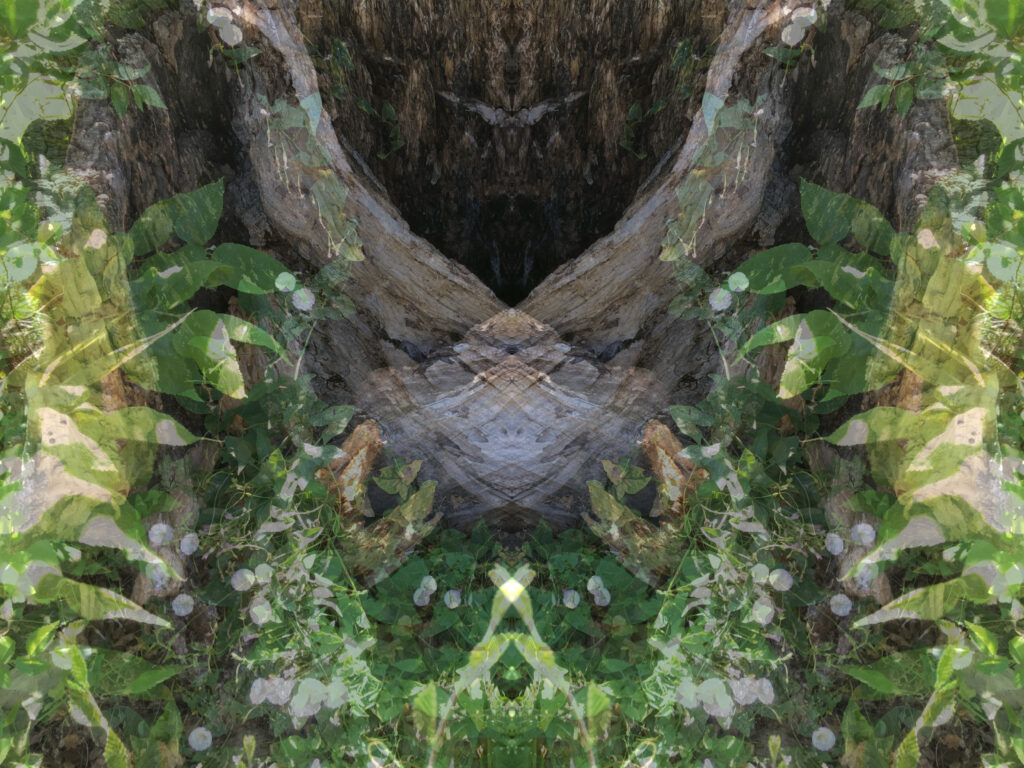
Yeah I don’t know how you managed to find me after all this time. We haven’t been the easiest to track down, Monty and I, and we like it that way. Though actually, you’ve managed to find me every St. Patrick’s Day since 2022 despite me being someplace else every single time. It’s a little disconcerting, like I’m starting to wonder if I was microchipped way back in the day in 2021 when I was out lollygagging around and blacked out behind that taco hut…
Anyway as I’d mentioned before, that Scratchers was a winner. And I’d already moved in with Monty come last St. Patrick’s Day. Hell, he’d already begun the process of cashing in the Scratchers, and what a process that was. It made my head spin, like too many squirrels chirping at you from three different trees at once. We did get the money eventually though.
Since I saw you last, we were kicked out of Monty’s crap apartment and had gone to live with his parents while we sorted things out. Thank goodness that was short-lived; his mother is a nosy one for sure, and Monty didn’t want to let on he was sitting on a gold mine as he knew they’d want a cut even though they had it made already. She did make a mean brisket though, and it sure beat living with Sal. Just sayin.
Anyway, we finally got a better beater car and headed west. I was livin’ the dream. We were seeing the country, driving out along old Route 66, for the most part. At least until our car broke down just outside of Roswell near the mountains and we decided to just shack it up there. (Boy, Monty sure can pick ‘em. It’s like he has radar for bad cars. Calling them lemons would be generous. At least it’s not high maintenance women who won’t toss you table scraps or let you up on the sofa.)
We found ourselves the perfect little cabin in the woods. And it turns out we were in the heart of Bigfoot Country, depending on who you ask. I wouldn’t know, I’ve never seen one. But it seems that Monty was all into all of those supernatural things: aliens, Bigfoot, even werewolves. And finding out his instincts on me were legit only added fuel to that fire. So now he sees himself as some sort of paranormal investigator.
Whatever. I keep telling him this werewolf gig isn’t all that it’s cracked up to be, and it doesn’t work like in the movies. I wasn’t bitten, and I generally don’t bite unless provoked. He says technically I’m a wolfwere, to which I just reply “Where?” and smile. Whatever. It’s the little things I guess. I just wish everything didn’t come out as a bark most of the time, though Monty’s gotten pretty good at interpreting… As long as he doesn’t get the government involved, and considering his take on the government himself that would seem to be a long stretch. We both prefer the down low.
So here we are, still livin’ the dream. There aren’t all that many rabbits out here but it’s quiet and the locals don’t seem to notice me all that much. And Monty can run around and make like he’s gonna have some kind of sighting of Bigfoot or aliens or the like. As long as the pantry’s stocked it’s no hair off my back. Sure, there are scads of tourists, but they can be fun to mess around with, especially at that time of the month if I happen to catch them out and about.
Speaking of tourists, I even ran into that misspent youth from way back in 2021 at the convenience store; I spotted him at the Quickie Mart along the highway here. I guess he and his girlfriend were apparently on walkabout (or car-about) perhaps making their way to California or something. He even bought me another cookie. Small world. But we all knew that already…
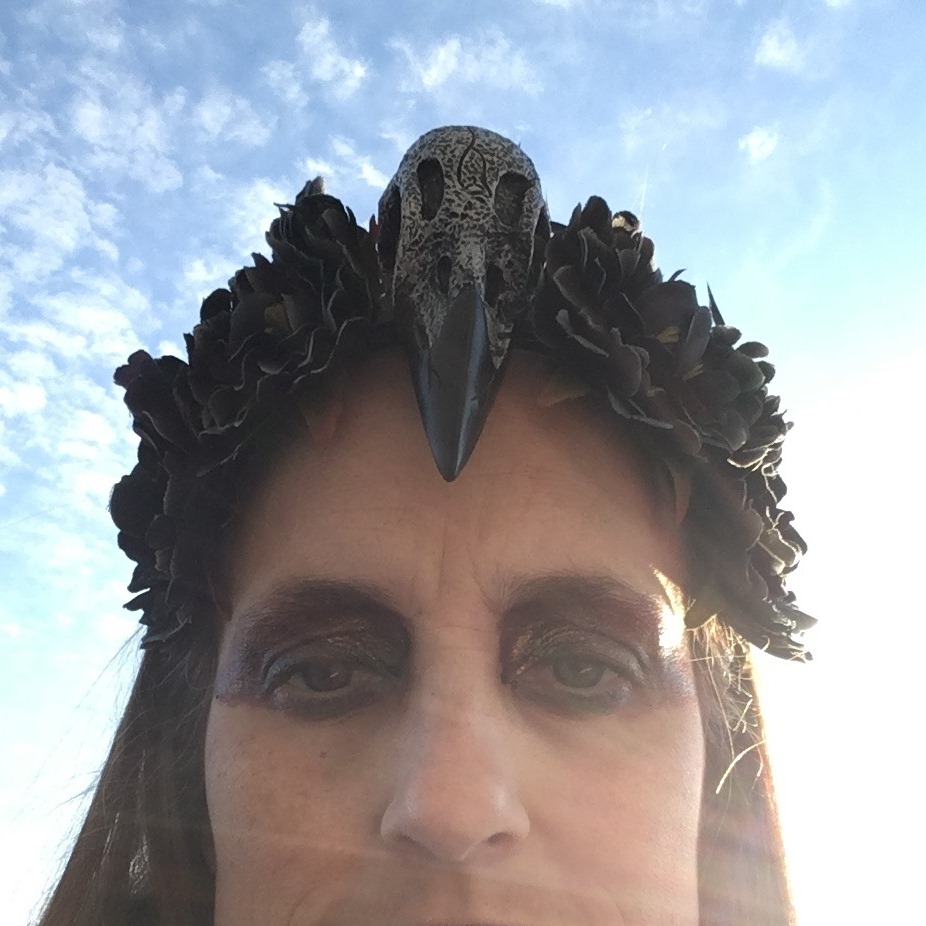
If you enjoyed this werewolf wolfwere wolfwhatever saga, feel free to check out more of Jennifer Weigel’s work here on Haunted MTL or here on her website.


